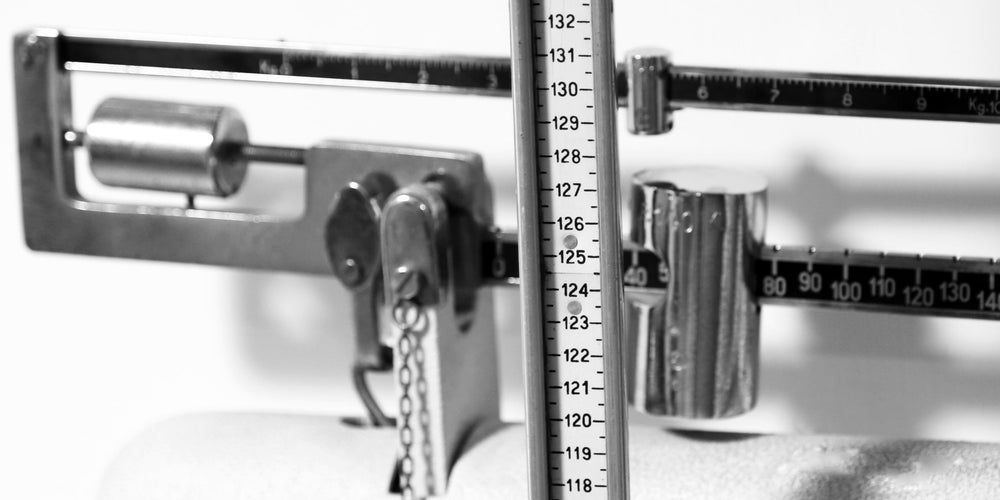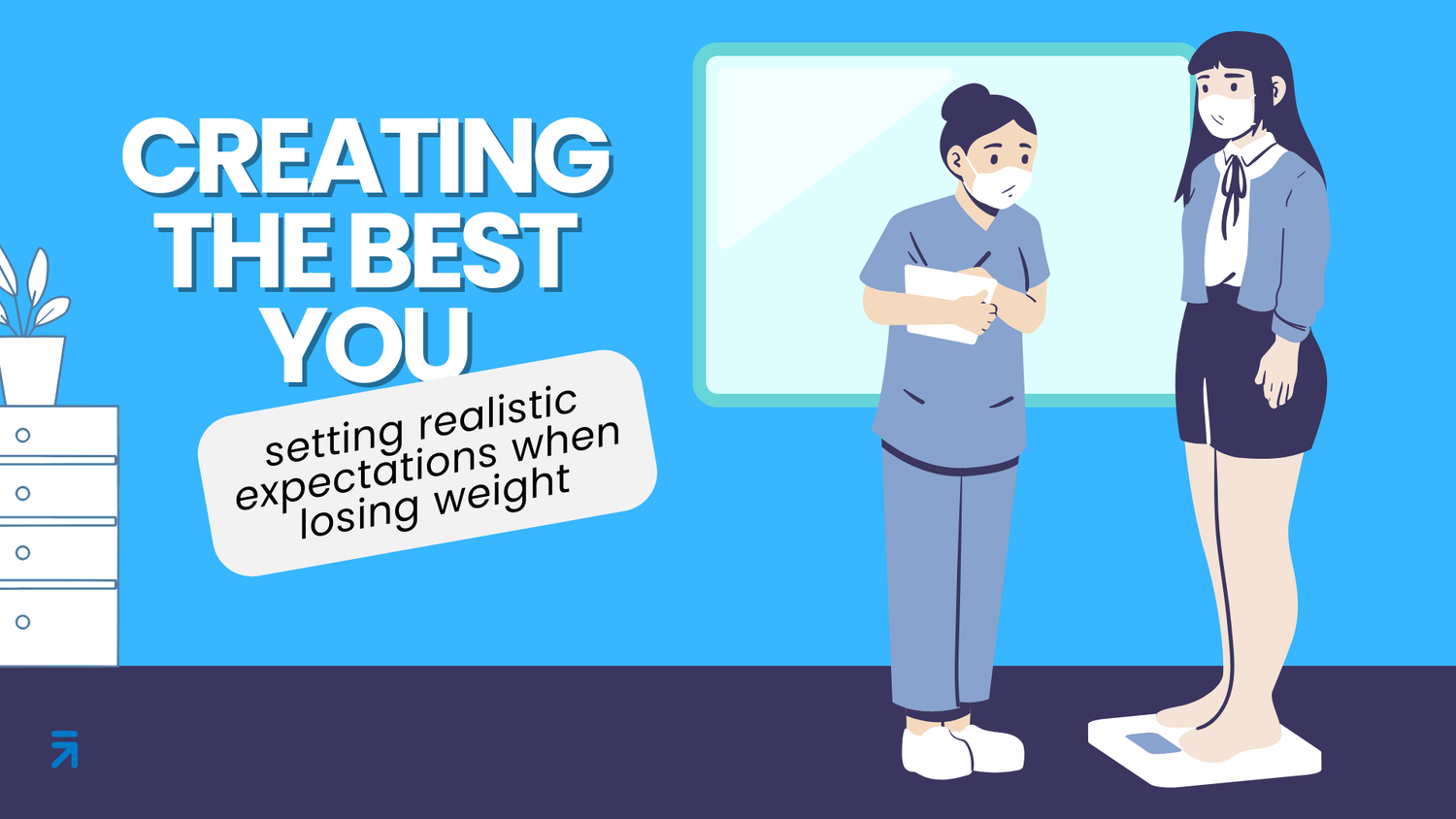Ideal Height and Weight for Different Age Groups Explained

Stay tuned to our latest news
Finding the right height and weight for your age can be a tricky endeavor. As we move through the different stages of life, our bodies go through significant changes that impact our ideal measurements. Whether you're a parent keeping track of your child's growth, an adult concerned about maintaining a healthy figure, or a senior citizen looking to age gracefully, understanding the benchmarks for your age group is crucial.
So, let’s check out the ideal height and weight ranges for various age brackets. From infancy to the golden years, we'll provide you with the information you need to ensure you or your loved ones are on the right track. By the end of this post, you'll have a clear understanding of what constitutes a healthy height and weight for your specific age, empowering you to make informed decisions about your overall well-being.
So, let's get started and explore the ideal height and weight for different age groups, shall we?
Why Is It Important to Maintain Healthy Height and Weight?

Maintaining a healthy height and weight is important for several reasons. Optimal height and weight help support proper organ function, muscle and bone development, and overall physical well-being. Being underweight or overweight can increase the risk of various health problems, such as heart disease, type 2 diabetes, high blood pressure, and certain types of cancer. Maintaining a healthy weight can help reduce the strain on the body's systems and improve physical performance and mobility.
A positive body image and self-esteem are also closely linked to maintaining a healthy height and weight, as struggles with weight and body image can contribute to mental health issues like depression, anxiety, and eating disorders. Achieving and maintaining a healthy weight can have a positive impact on an individual's mood, confidence, and overall mental well-being.
Research has shown that individuals within a healthy BMI range have a lower risk of premature mortality and tend to enjoy a higher quality of life, as maintaining a healthy weight can help reduce the risk of developing chronic health conditions. Being at a healthy weight can also provide more energy and vitality, enabling individuals to be more physically active and productive in their daily lives, as proper nutrition and weight management can support cognitive function, concentration, and overall productivity.
What Factors Can Affect Your Height and Weight?
Several major factors can affect a person's height and weight. These factors include diet, physical activity, genetics, metabolism, hormones, stress, and sleep.
Diet plays a pivotal role in determining both height and weight. A nutrient-rich diet, particularly during the growing years, promotes optimal growth and development. Adequate intake of protein, calcium, vitamins, and minerals is essential for bone health and can contribute to achieving a potential height. Moreover, a balanced diet helps maintain a healthy weight by providing the necessary nutrients while avoiding excessive calorie intake.
Physical activity is another significant factor that influences height and weight. Regular exercise and physical activity stimulate the release of growth hormones, which contribute to bone growth and development. Additionally, engaging in physical activities helps regulate weight by burning calories and building muscle mass.
Genetics also play a crucial role in determining height and weight. A person's height and weight are influenced by genetic factors inherited from their parents. While genetics sets a baseline, other factors can still modify the potential height and weight.
Metabolism affects both height and weight. It refers to the rate at which the body converts food into energy. A higher metabolism may contribute to a leaner body and better weight management.
Hormones, specifically growth hormones and sex hormones, are instrumental in determining height and weight. Growth hormone deficiency can lead to stunted growth, while imbalances in sex hormones may affect weight distribution and body composition.
In addition to diet, physical activity, genetics, metabolism, and hormones, factors such as stress and sleep can also impact height and weight. Chronic stress can disrupt hormonal balance, leading to growth and weight-related issues. Adequate sleep is crucial for proper growth and maintenance of a healthy weight.
What Is the Ideal Height and Weight for Different Age Groups?

The ideal height and weight can vary depending on an individual's age, gender, and other factors. Here is a general overview of the ideal height and weight ranges for different age groups:
Children and Adolescents:
- Ages 2-5: Height 34-43 inches, Weight 26-44 lbs
- Ages 6-11: Height 45-59 inches, Weight 39-88 lbs
- Ages 12-19: Height 59-72 inches (girls), 64-76 inches (boys), Weight 80-135 lbs (girls), 100-165 lbs (boys)
Adults:
- Ages 20-39: Height 64-72 inches (women), 68-78 inches (men), Weight 110-160 lbs (women), 140-210 lbs (men)
- Ages 40-59: Height 63-70 inches (women), 67-76 inches (men), Weight 115-170 lbs (women), 150-220 lbs (men)
- Ages 60+: Height 60-68 inches (women), 65-74 inches (men), Weight 110-160 lbs (women), 140-200 lbs (men)
It's important to note that these are general guidelines, and the ideal height and weight can vary based on individual factors such as body frame, muscle mass, and overall health status. Additionally, the BMI (Body Mass Index) calculator is a useful tool to determine if an individual's weight falls within a healthy range for their height.
It's always best to consult with a healthcare professional, such as a doctor or nutritionist, to determine the ideal height and weight for a specific individual, especially during periods of growth and development or if there are any underlying health conditions.
5 Tips to Maintain Ideal Weight
Maintaining an ideal weight is crucial for overall health and well-being. Here are the top five tips to help you achieve and sustain a healthy weight:
- Adopt a healthy diet: A nutritious, balanced diet is key to maintaining an ideal weight. Include plenty of fruits, vegetables, whole grains, lean proteins, and healthy fats in your meals. Avoid processed foods high in added sugars, unhealthy fats, and sodium. A well-rounded diet provides the necessary nutrients while reducing the risk of weight gain.
- Engage in regular physical activity: Physical activity promotes calorie expenditure and helps prevent weight gain. Aim for at least 150 minutes of moderate-intensity aerobic exercise or 75 minutes of vigorous-intensity one every week. Additionally, incorporate strength training exercises to build muscle mass, which contributes to a higher metabolic rate.
- Get adequate sleep: Sleep deprivation can disrupt hormones related to appetite and increase the risk of weight gain. Aim for 7-9 hours of quality sleep per night to help regulate these hormones. Establish a consistent sleep schedule and create a relaxing bedtime routine for better sleep.
- Manage stress effectively: Chronic stress releases cortisol, a hormone that can lead to weight gain and increased fat storage. Practice stress-management techniques, such as meditation, deep breathing exercises, or engaging in hobbies, to reduce stress levels. This promotes a healthier weight and overall well-being.
- Practice portion control: Be mindful of portion sizes to avoid overeating. Use smaller plates and bowls and pay attention to hunger and fullness signals while eating. Practice mindful eating by savoring each bite, eating slowly, and avoiding distractions. This helps prevent excessive calorie intake and promotes weight maintenance.
Takeaway
Finding the right height and weight for your age can be a delicate balance, but it is crucial for overall health and well-being. As we progress through the various stages of life, our bodies undergo significant changes that impact our ideal measurements.
Whether you are a parent keeping track of your child's growth, an adult concerned about maintaining a healthy figure, or a senior citizen looking to age gracefully, understanding the benchmarks for your age group is key. By being aware of the ideal height and weight ranges for different age brackets, you can take proactive steps to ensure you or your loved ones are on the right track.
Achieving and maintaining a healthy height and weight provides numerous benefits. It supports proper organ function, muscle and bone development, and reduces the risk of chronic health conditions. A positive body image and self-esteem are also closely tied to weight management, as struggles with weight can impact mental well-being.
Several factors can influence height and weight, including diet, physical activity, genetics, metabolism, hormones, stress, and sleep. Recognizing these influences empowers you to make informed decisions about your health and take the necessary actions to reach and sustain your ideal measurements.
By following the recommended height and weight guidelines for your age group, and incorporating healthy lifestyle habits like a nutritious diet, regular exercise, adequate sleep, and stress management, you can attain and maintain a healthy height and weight throughout your life. This, in turn, will support your overall physical and mental well-being, allowing you to thrive at every stage of your journey.
Renpho Health Tips
-

How Accurate Are Body Fat Scales? Pros and Cons to Consider
July 11, 2024
Read more >
-

Creating the Best You: Setting Realistic Expectations When Losing Weight
July 7, 2024
Read more >
-

Hold Back on the Bite: Finding Balance in Mindful Eating
June 24, 2024
Read more >
-

Prioritizing Pregnancy Safety: Is a Smart Scale the Wise Choice?
June 20, 2024
Read more >
-

Shrinking Dishes: Exploring the Reasons Why Food Portions Decrease During Cooking
June 13, 2024
Read more >





